Disinfectants and antibacterial laundry detergents
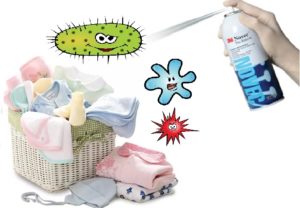 We are surrounded by a colossal number of microorganisms, beneficial and harmful. We inhale them with the air, absorb them with water and food, our skin is constantly attacked by microscopic invaders, but this does not mean that a person should be afraid of them. We just need to take adequate measures so that our body lives with bacteria and viruses in relative harmony. First of all, it is necessary to observe basic hygiene rules, and we are not just talking about washing your hands, washing your face, brushing your teeth and showering in the mornings and evenings. You need to remember about the mandatory antimicrobial treatment of laundry during washing.
We are surrounded by a colossal number of microorganisms, beneficial and harmful. We inhale them with the air, absorb them with water and food, our skin is constantly attacked by microscopic invaders, but this does not mean that a person should be afraid of them. We just need to take adequate measures so that our body lives with bacteria and viruses in relative harmony. First of all, it is necessary to observe basic hygiene rules, and we are not just talking about washing your hands, washing your face, brushing your teeth and showering in the mornings and evenings. You need to remember about the mandatory antimicrobial treatment of laundry during washing.
Modern man has somehow forgotten about the lengths our ancestors went to in order to rid laundry of dirt and germs. Well, what, I poured the powder into the cuvette of an automatic washing machine, launched the program and received washed and wrung out laundry, but it is not a fact that this laundry was properly disinfected. In this article we will tell you how to properly disinfect clothes, what disinfectants to use and how to choose them optimally.
How to rid laundry of germs?
An antibacterial agent for washing machines is a chemical substance or mixture of substances that have pronounced antimicrobial properties. However, not every antibacterial detergent can be used freely, because aggressive chemicals often harm not only microbes, but also fabric fibers, gradually rendering the laundry unusable.Therefore, our grandparents, and a considerable number of modern housewives, prefer to disinfect linen using more gentle methods. Over time, four main approaches to antibacterial treatment of linen have been developed:
- disinfection by boiling;
- antimicrobial treatment with aggressive chemicals based on chlorine and alkali;
- disinfection using improvised, home remedies;
- treatment of linen during washing with modern antibacterial compounds.
There is also a mechanical method, although in our case it is not used during washing, but rather as an addition to it. We are talking about steam treatment when the laundry is laid in a washing machine with steam function, and the washing machine processes things for a certain time, as a result of which 98% of the microflora dies.
Ironing can also be considered a mechanical method of processing laundry after washing.
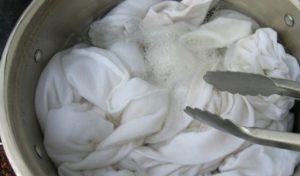 However, let's not get distracted and return to the methods of antibacterial treatment of laundry during washing and start with boiling. This method is one of the oldest and, nevertheless, still popular. Its essence is clear to everyone. The laundry is immersed in a suitable container with hot water, having previously covered the bottom with an unnecessary rag so that things do not burn, then the water is brought to a boil and boiled for about 40 minutes. Then the fire is gradually reduced and the container with the laundry is left on the now cooled stove until it cools completely, then rinsed.
However, let's not get distracted and return to the methods of antibacterial treatment of laundry during washing and start with boiling. This method is one of the oldest and, nevertheless, still popular. Its essence is clear to everyone. The laundry is immersed in a suitable container with hot water, having previously covered the bottom with an unnecessary rag so that things do not burn, then the water is brought to a boil and boiled for about 40 minutes. Then the fire is gradually reduced and the container with the laundry is left on the now cooled stove until it cools completely, then rinsed.
In its pure form, housewives almost never use boiling, combining heat treatment of linen with chemical treatment, adding various laundry detergents to boiling water, at least laundry soap, chlorine bleach, hydrogen peroxide or borax. Boiling with bleach is super effective.Not a single speck of dirt will survive, much less germs, but what will happen to the fabric? It’s no wonder that only natural, undyed cotton or linen fabrics can withstand boiling with bleach.
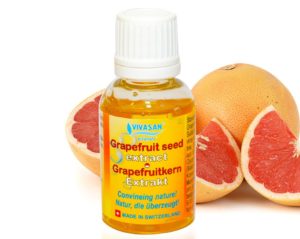 If you have synthetic or mixed clothing, it is better to refrain from aggressive chemicals or boiling and get rid of germs in another way. You can take 50 ml of hydrogen peroxide and 100 g of borax. Add them to the washing machine along with the powder, start the wash as usual, and then wait for the end of the program. An even more gentle way to have an antibacterial effect on linen is to use grapefruit seed extract. Take 10 drops of extract per 4 liters of water and also add it to the machine along with the powder.
If you have synthetic or mixed clothing, it is better to refrain from aggressive chemicals or boiling and get rid of germs in another way. You can take 50 ml of hydrogen peroxide and 100 g of borax. Add them to the washing machine along with the powder, start the wash as usual, and then wait for the end of the program. An even more gentle way to have an antibacterial effect on linen is to use grapefruit seed extract. Take 10 drops of extract per 4 liters of water and also add it to the machine along with the powder.
In addition to grapefruit seed extract, lavender or tea tree essential oils are used. The latter is well suited for allergy sufferers, since it leaves no aromas at all, except for the smell of freshness. If the use of home remedies is unacceptable for you, you can use modern industrial disinfectants, which we will discuss later.
Review of antimicrobial laundry products
Which antibacterial detergent to choose? The question is quite serious, considering the volume of supply in the modern market. Our experts tested several types of antimicrobial laundry detergents and came to the conclusion that the list of effective and safe disinfectant compounds is not that long.
- Lion Top Hygia. A unique Japanese product for washing and safely disinfecting laundry. The uniqueness of this washing gel is that it perfectly removes various, even persistent, stains, without any harm to the fabric.Gently gets rid of germs, and it does it no less effectively than chlorine bleach. It does not harm human health and is economically used.
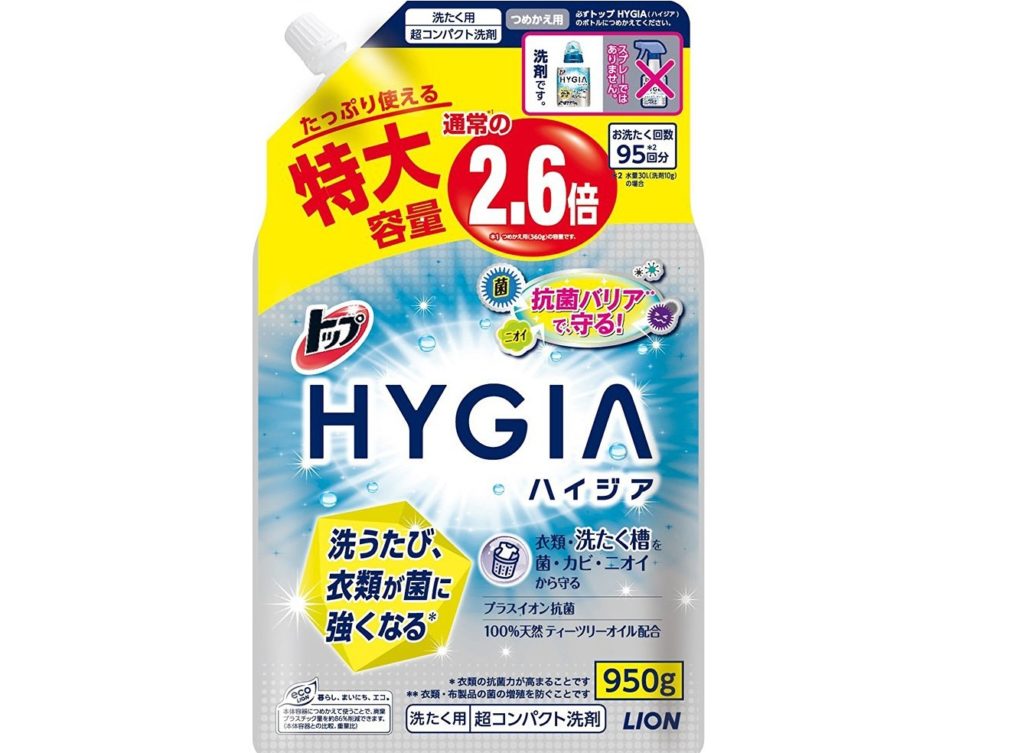
- Fa Fa washing gel. Another Japanese washing gel. It is also very good, but its characteristics are not so impressive, since this product is not concentrated and is more expensive, but it is suitable for washing children's clothes.
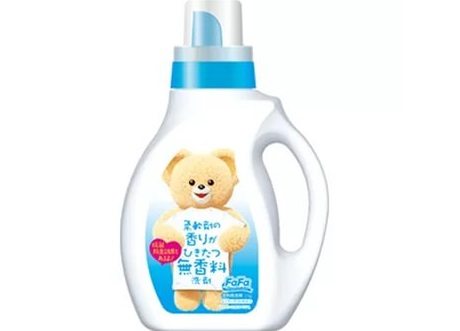
- CHAPTER washing. Professional disinfectant powder, which is also intended for washing special items. clothes made of linen, cotton, mixed and synthetic fabrics. This powder cannot be used to wash dyed items, clothes made from natural wool and silk. The substances included in the powder completely suppress mycobacterium tuberculosis, influenza virus, HIV, herpes, Candida fungi and other microorganisms.
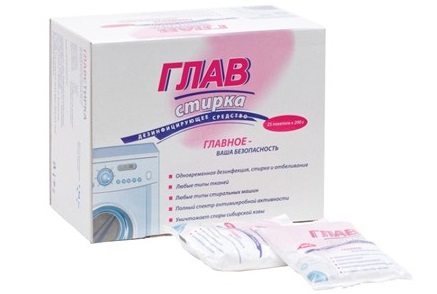
The GLAV washing agent is used when washing gowns for personnel of specialized medical and other institutions.
- Antibacterial laundry detergent Plus. Essentially, it is a washing gel with a pronounced antibacterial effect. It not only perfectly removes dirt and 97% of microflora from fabric, but also temporarily prevents the proliferation of microbes on its surface and inside the fibers. The main disadvantage of the gel is the content of chlorine compounds. So it is not recommended to use it for “delicate” fabrics. Also, you should not wash children's clothes and items of allergy sufferers with it.
- Sarma Active. Of the commonly used washing powders, Sarma, based on data obtained from test results, has the most pronounced disinfecting effect. True, this powder has a rather aggressive composition and does not rinse well, so if you decide to wash it with it, do a double rinse.
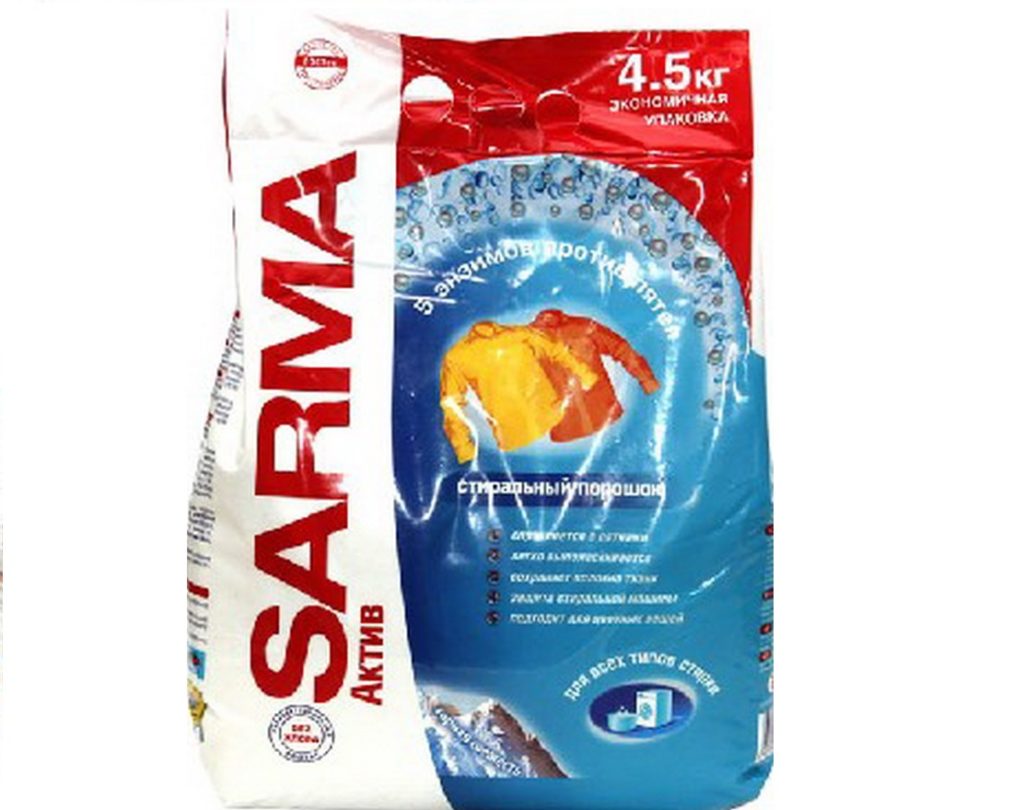
We have presented the five best disinfectants for washing clothes. These powders and gels have been thoroughly tested and their antibacterial effect has been proven. We can’t say anything definite about other powders, gels, sprays and other products; it is necessary to continue research.
Use of antimicrobial chemistry
As can be seen from our review, most of the factory-made laundry disinfectants are included in washing powders and washing gels, which means there should be no problems with their use. As a last resort, you can read the instructions on the package and clarify any unclear points. The situation is a little worse with available disinfectants. They can easily ruin clothes; all you need to do is make a slight mistake in the dosage or mix the chemicals in the wrong proportions. There are certain recommendations in this regard.
- Before using antimicrobial treatments on specific items of clothing, first wash the fabric samples that the manufacturer usually provides with them. If a piece of fabric has not changed color or deteriorated, then this composition is safe for the item.
- Use chlorine bleach only to disinfect undyed, rough natural fabrics. They are not suitable for mixed and synthetic fabrics, as well as wool and silk.
- When using essential oils as antibacterial compositions for linen, take only those that do not leave marks on things and do not have a pronounced odor. It is also not recommended to exceed the dosage of essential oils; they are difficult to rinse out of fabric and in high concentrations they can cause an allergic reaction.
- Don't get too carried away with using borax, soda ash or hydrogen peroxide. These substances, in high concentrations, can ruin things, and in some cases even the washing machine.
So, when we talk about using antibacterial laundry detergents, we most often mean either special powders or gels, or homemade remedies. You must use these products in strict accordance with the rules, otherwise it is fraught with consequences not only for your things, but also for your health. Happy washing!
Interesting:
Reader comments
- Share your opinion - leave a comment

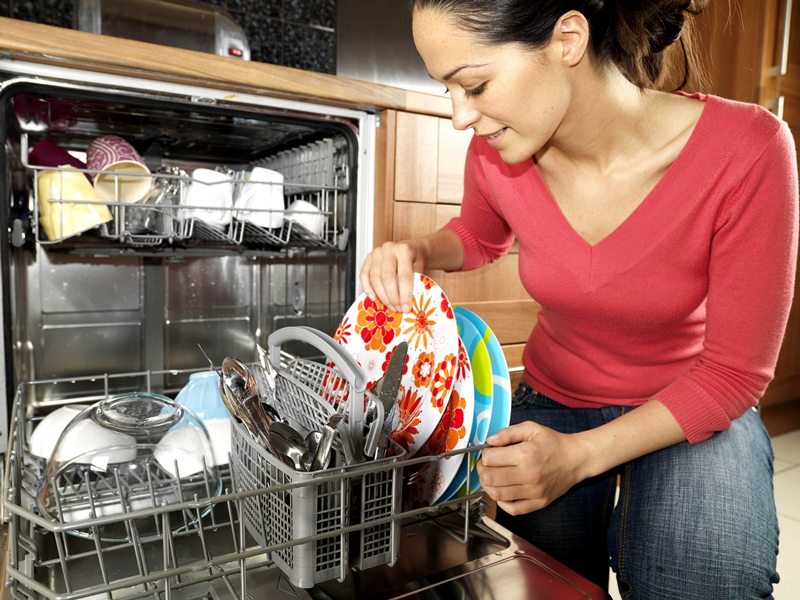
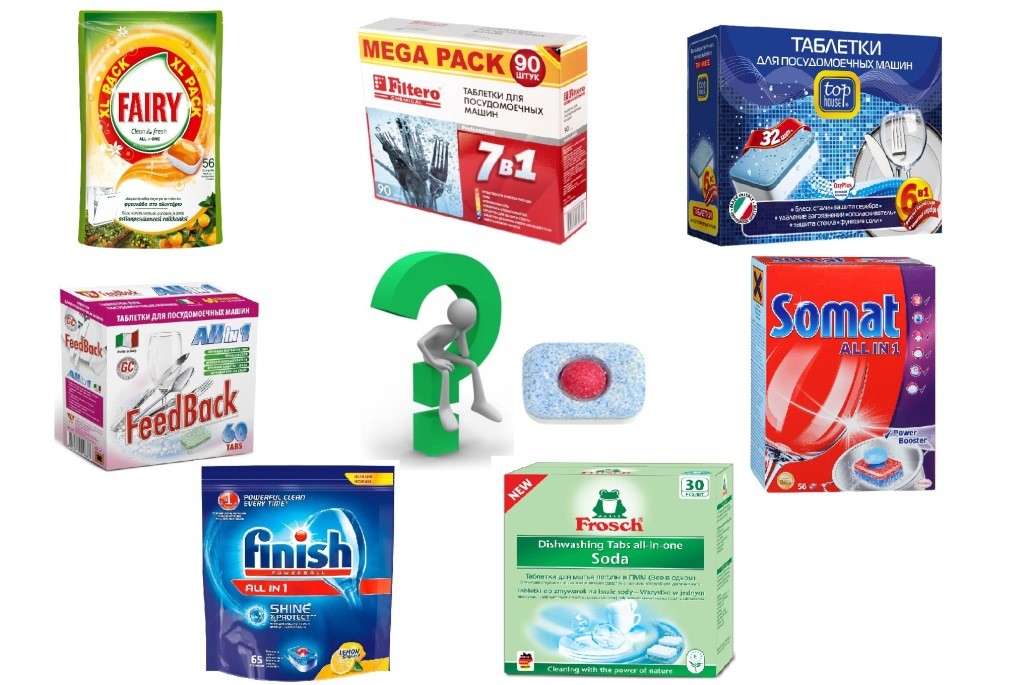
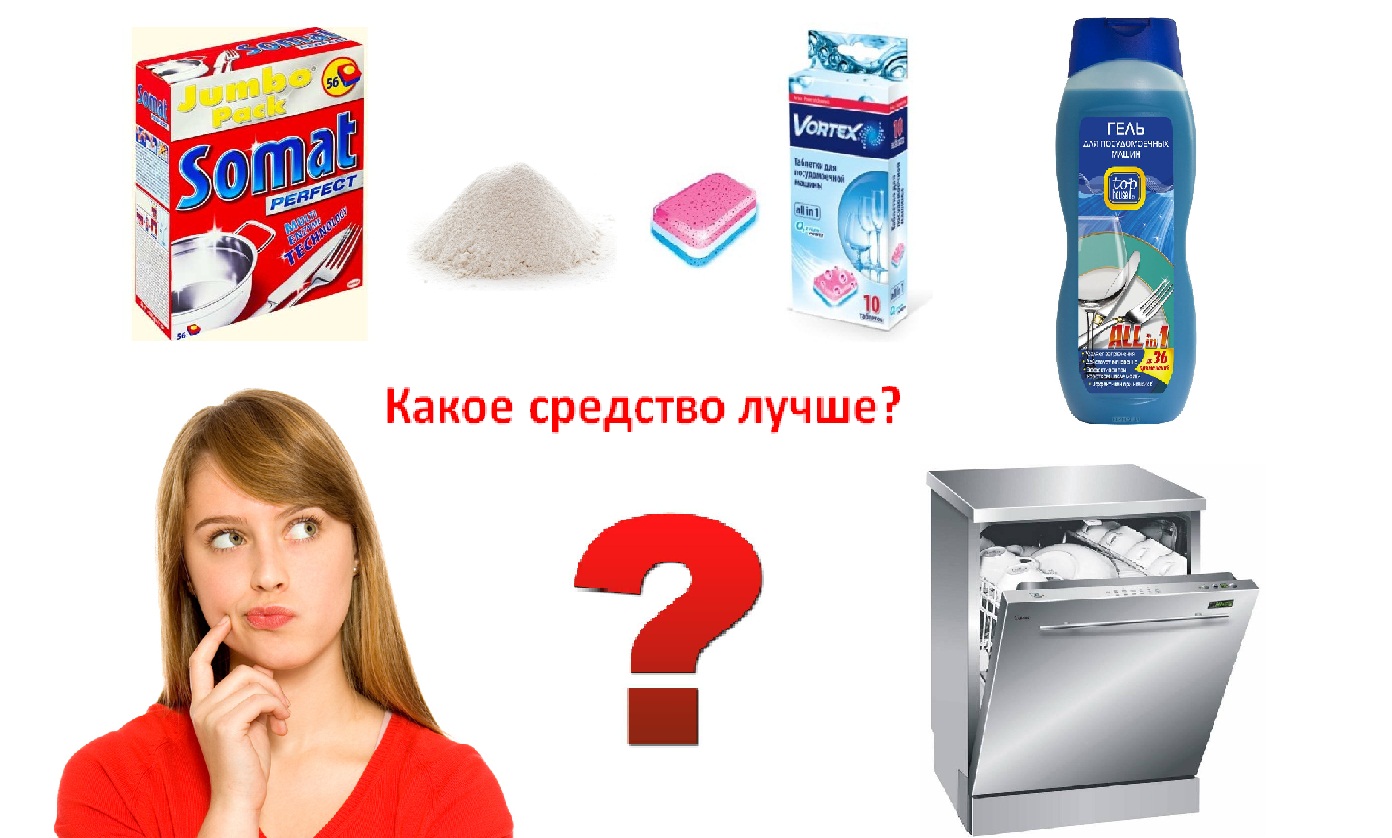
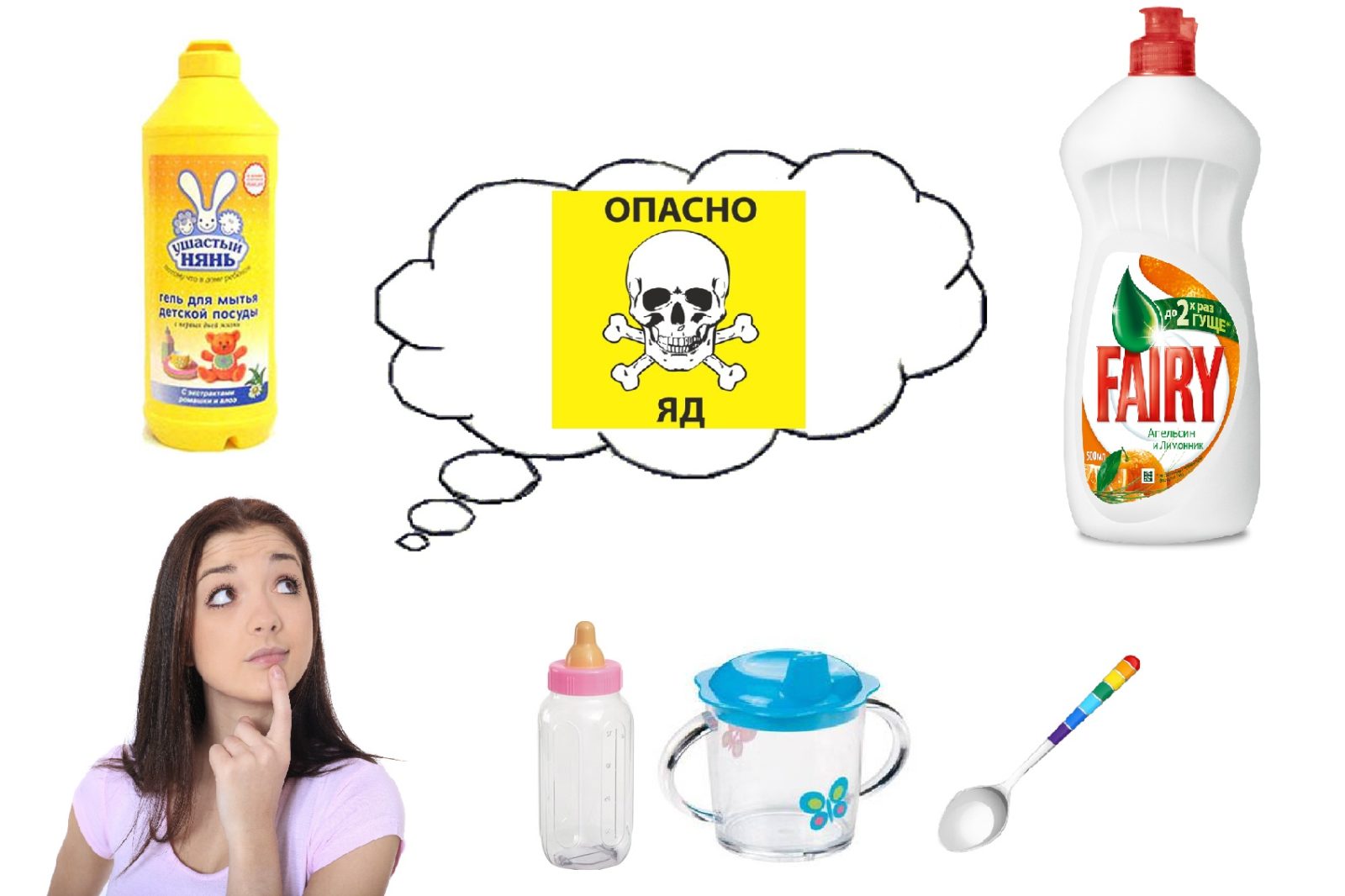

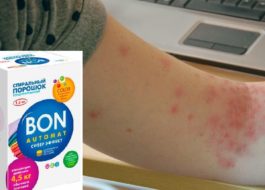


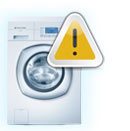
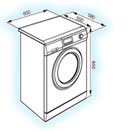


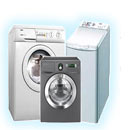
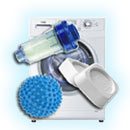

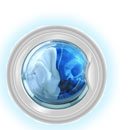
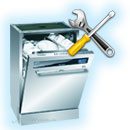
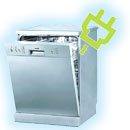
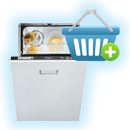
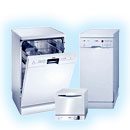
Add a comment